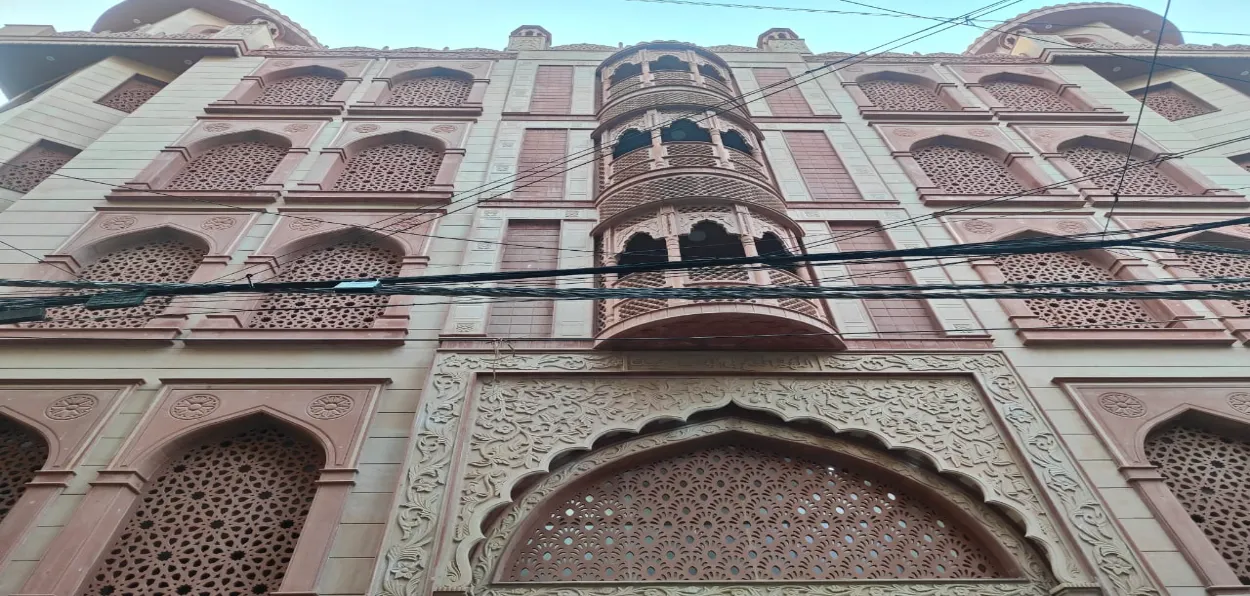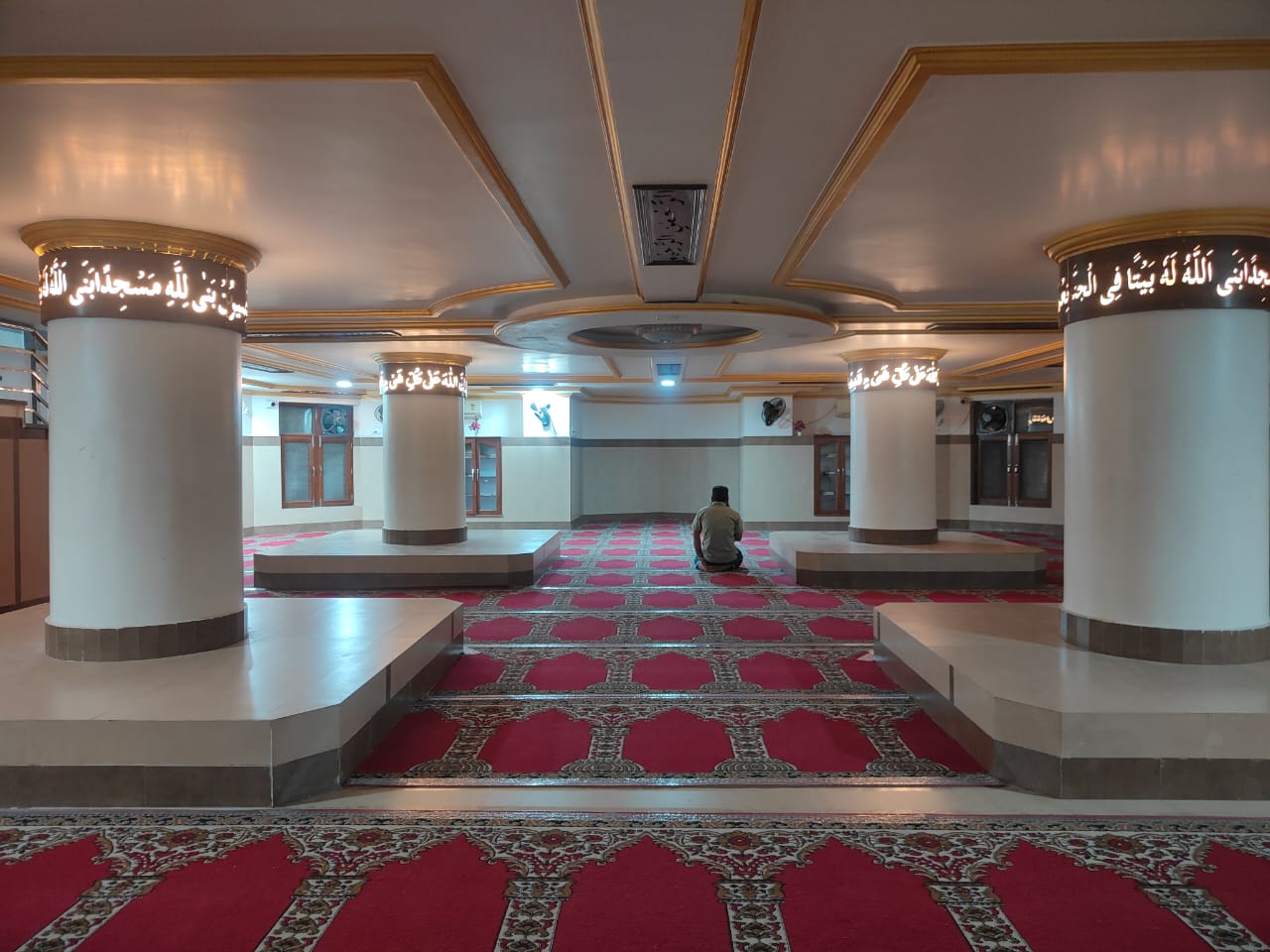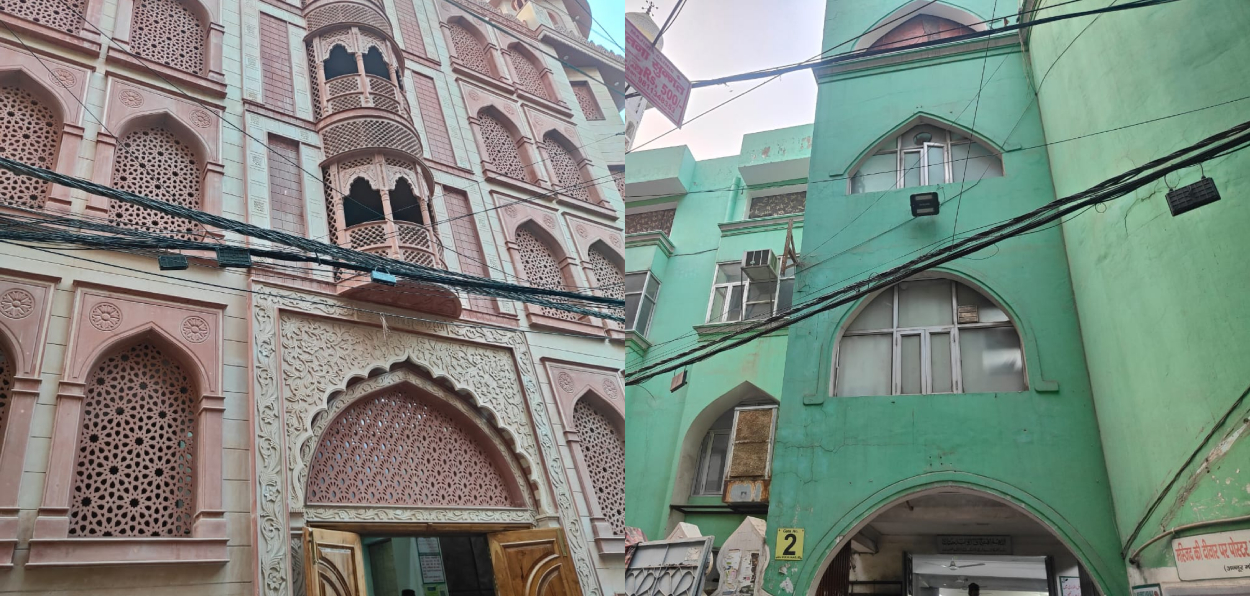
Tarique Anwar/New Delhi
The intricate carvings on the walls, graceful arches, and exquisite Arabic calligraphy of Al-Noor Masjid—popularly known as Hari Masjid—in Delhi’s Batla House leave onlookers spellbound. Tucked away in a vibrant Muslim neighbourhood in Southeast Delhi, the renovated mosque stands as a symbol of architectural splendour and above all the harmony that transcends faith.
The renovated mosque has given a new identity to Batla House, a locality which is also a name of the Bollywood movie. However, what makes this structure remarkable is that the exquisite craftsmanship on its walls is carried out by Hindu artisans from Rajasthan.
Bablu Chaurasia, the owner of Rajasthan Stone Artists — the firm responsible for the stunning stonework — expresses gratitude to the Almighty for the opportunity of the “pious work”. In times darkened by division and discord, this collaboration shines as a defiance of hatred and a living example of the shared values of Indians.
“We (His firm) began working on mosques around the year 2000 and have, so far, contributed to the construction of at least 80 mosques across the country,” Chaurasia told Awaz-The Voice on phone from Karauli in Rajasthan.

The renovated entry of the Hari Masjid
“Humanity is the greatest religion,” he said.
“Whether it is a mosque or a temple, both are houses of God. This belief guides my work. I build temples; I build mosques. I consider myself fortunate to contribute to spaces devoted to the Divine.”
Chaurasia shared that when he first began working on mosques, people tried to dissuade him, but he was undeterred. “Whenever I work, one thought always echoes in my mind: I am working for the Creator of this universe. You may call Him God, Allah, or Bhagwan. I do not see people as Hindu or Muslim while I work. I perform my craft with complete sincerity and devotion. Work is a form of worship for me, and I want to give it nothing less than my very best.”
Talking about his collaboration with Muslim clients, he said, “I work closely with the Muslim community and do business with them. I have found them to be honest, respectful, and noble.”
Laiq Ahmad, the mutawalli (caretaker) of the mosque who oversaw the renovation, said, “When the need for renovating this mosque arose, my first thought was that its front view should be beautiful. I searched for quite some time, but could not find skilled artisans. It caused delays,” he said.
 The basemnent of the Renovated Hari Masjid
The basemnent of the Renovated Hari Masjid
After much effort, he came across Bablu Chaurasia. “I did not hire them immediately — I reviewed their work. They were building a mosque in Bulandshahr; I gathered information and watched videos of their work. They were also executing another project in Meerut, which I visited. After thorough research and due diligence, we awarded them the contract.”
Ahmad praised the work ethic and integrity of Bablu Chaurasia, his son Vivek Chaurasia, and their team. “They put in an extraordinary amount of hard work. Their firm is the epitome of honesty. Their actual expenses exceeded the amount we had agreed upon. Yet, because the work was for a mosque, they only charged the originally agreed amount. We even offered to compensate them for the extra costs, but they politely declined. I gave them a token of appreciation as a reward because the work they delivered was exquisite,” he said.
Ahmad recalled that the team had presented several design proposals in the initial stages. “One of those was shortlisted. Since I am a builder, I offered a few design directions to them.”
“What they delivered far exceeded my imagination. It was not just about beauty — the workmanship is incredibly durable. They have built a strong and lasting structure, incorporating advanced technology throughout,” he claimed.
Ahmad explained that the area is close to the Yamuna River and due to moisture stone facades on walls often loosen and fall off over time. “I had raised this concern with Bablu ji. He assured me that the structure would easily last more than a hundred years.”

Now and then look of the Hari Masjid after renovation
“The team employed cutting-edge techniques and used quality material to bind the stones, contributing significantly to the strength and longevity of the mosque. Every member of the team worked with great dedication and care. The stone designs were crafted in Rajasthan and transported for installation. Their commitment was evident in every detail, and for that, I offer them my heartfelt congratulations and prayers,” he said.
All the artisans were from Rajasthan, and the entire team stayed here during the project. “I arranged accommodation for them and tried to provide every facility within my means,” he added.
Asked to shed light on the innovative construction methods employed during the renovation, he said, "This mosque was already a constructed building but has no basement. Earlier I had worked with a well-known construction company in Saudi Arabia, where we successfully built basements in pre-existing structures. I shared that formula with Bablu ji,” he explained.
ALSO READ: Assam: 1000 artists perform zikir to reaffirm faith in Azan Fakir's message of unity
“This kind of work requires the use of specialized apparatus. Babluji and his team implemented all the techniques commonly used in developed countries. Despite the mosque being in a densely populated area, they managed to construct a fully functional basement and it is remarkable,” he concluded.
